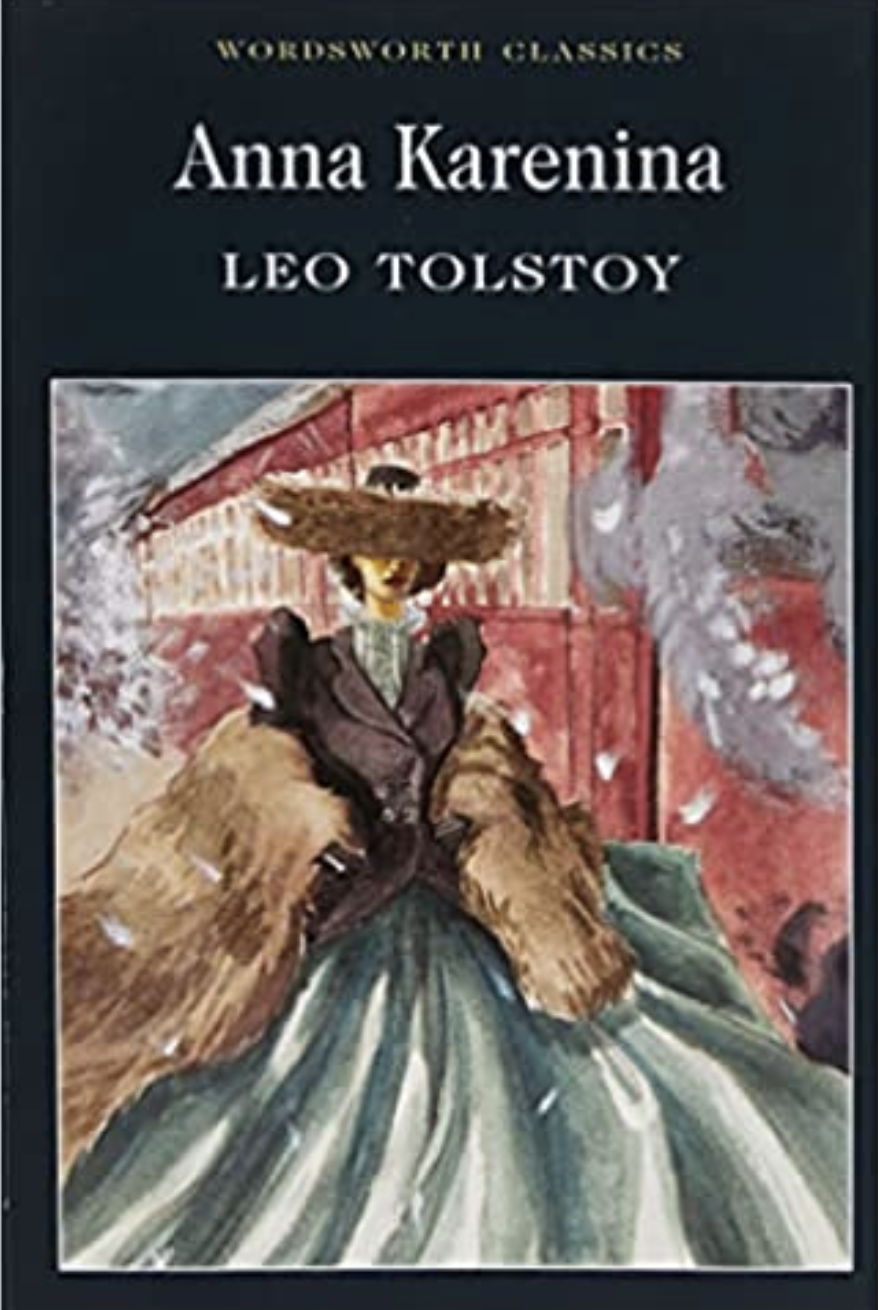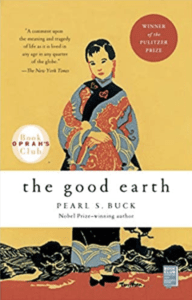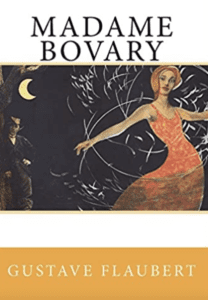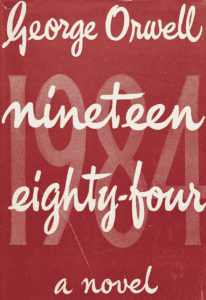Author: Leo Tolstoy or Count Lev Nikolayevich Tolstoy, was a Russian Novelist (active 1847 – 1910) who was nominated several times for the Nobel Prize in Literature.
Indisputably one of the greatest novels ever written in any language, this story delves into the psyche of the central characters elucidating the thinking behind actions and decisions. Published serially in late nineteenth century Russia before the Revolution, it encompasses within its vast expanse of social commentary, – the shallowness of urban high society, the double standards in judging men and women; as well as the larger questions of moral and political philosophy.
Anna’s brother Prince Stepan Oblonsky’s wife Dolly discovers his affair with their children’s governess. Oblonsky considers it natural for a handsome prince with an aging wife past her prime to have an affair. Anna, wife of a highly placed government official Alexey Karenin, travels from St. Petersburg to Moscow to mediate. She meets Vronsky, a dashing young cavalry officer, at the railway station receiving his mother, her fellow passenger. When Anna is distressed that a guard is accidentally killed by a train, Vronsky leaves money for the widow.
Vronsky transfers his attentions from Dolly’s young sister Kitty to Anna. Serious-minded and socially awkward Konstantin Levin, the novel’s other protagonist, travels from his country estate and stays with half-brother Sergey Koznishev, the famous writer, to propose marriage to Kitty. Kitty rejects Levin favoring Vronsky, who dances with Anna in a ball ignoring Kitty. Ill from humiliation, Kitty goes to a German spa to recuperate. Here she meets Varenka, the companion of an invalid Russian lady. Serene and always helpful, Varenka’s influence calms Kitty.
Levin visits brother Nikolay Levin, who has squandered his fortune, now living in squalid conditions surrounded by disreputable people. Nikolay forms a counterpoint to the enterprising and righteous Levin, though Levin is plagued by self-doubt; while Koznishev’s intellectuality contrasts with Levin’s practical manual farm-work.
Anna finds Vronsky following her on her journey back. At the station, Anna is dissatisfied with herself looking at the frigid and imposing Karenin, twenty years her senior. Anna joins the fashionable group of Princess Betsy Tverskaya, a mutual relative, to meet Vronsky regularly. Karenin considers jealousy shameful, and warns Anna to conduct herself in a proper manner, but soon all limits of propriety are crossed. When their desire is finally fulfilled, Anna feels intense shame and guilt; while seeing Anna in this state, Vronsky feels like a murderer witnessing life ebbing away from the body of his victim.
Living at Karenin’s summer-villa away from Karenin, Anna deems her situation impossible; though others like Betsy indulge in secret trysts. When Anna becomes pregnant, Vronsky insists that Anna leaves Karenin and formalizes their relationship; but Anna is reluctant to leave her son Seryozha. Vronsky participates in an important race immediately after, making a fatal mistake which kills his mare, though he escapes unhurt. Anna is in tears in the gallery worried for Vronsky, which leads later to Karenin learning the whole truth.
Levin works in his farm alongside the laborers formulating agricultural theories, though proud to be an aristocrat. He hosts friend Oblonsky in spring and Koznishev in summer. Levin visits Dolly staying at their estate nearby, and Dolly encourages him about Kitty; but when Kitty visits Dolly, Levin stays away.
Vronsky declines a lucrative posting to remain near Anna. Karenin first considers challenging Vronsky to a duel, and then divorce, but both would lead to public scandal. He considers Anna corrupt, while Anna feels Karenin crushed her for eight years. She regards her position as false and dishonorable. Karenin feels granting Anna divorce would mean Anna’s crime has been to her advantage. He reasons not casting off his wife will give her a chance for amendment, which has religious sanction.
Despite Karenin forbidding it, Anna, unwell with pregnancy, calls Vronsky home. Vronsky walks in just as Karenin is leaving, and next morning Karenin takes Vronsky’s letters from Anna’s desk, goes to Moscow and consults a lawyer. Encountering Oblonsky, Karenin is invited to dinner along with Levin and Kitty among others. Dolly tells Karenin a divorce will utterly ruin Anna. Levin again asks for Kitty’s hand, and eventually the two lead a happy married life.
Karenin returns learning Anna is dying in childbirth, and finds an emotionally overcome Vronsky. Aggrieved by Anna’s imminent death, Karenin forgives Anna and Vronsky, but resolves from Christian duty not to abandon Anna. Despairing at his debasement in contrast to Karenin’s moral elevation, Vronsky shoots himself in the chest but recovers. Anna also recovers, Oblonsky convincing Karenin to divorce Anna. Resigning from the army, Vronsky takes Anna and his infant daughter abroad, without obtaining divorce.
Lovingly respectful, Vronsky ensures Anna does not feel the awkwardness of her position. Karenin bears alone unspoken contempt from others, till Countess Lidia, Karenin’s overtly religious friend, arrives to control his household. When Anna returns to Petersburg for Seryozha, they take rooms in a hotel. Though Lidia stops Anna from seeing Seryozha, Anna meets him on his birthday. Petersburg society shuns Anna, – officially married to Karenin but openly living with Vronsky. Insulted and disgraced in the theater, she moves to the country.
Visiting the dying Nikolay with Levin, Kitty takes care of him. Dolly visits Anna while staying with the pregnant Kitty. Anna moves to Moscow, where Oblonsky brings Levin. Kitty is hurt realizing Anna impressed Levin. Stifled in their relationship, Vronsky often goes away on political and other pursuits, and Anna imagines he loathes her. Karenin declines divorce when Oblonsky pleads on Anna’s behalf, not allowing her to see Seryozha.
While Vronsky is welcome in society, Anna is ostracized as a fallen woman. Anna’s intense jealousy and quarrels exhaust Vronsky. Visiting Dolly, Anna meets the new mother Kitty, pitied now by the girl she once patronized. Going to the railway station looking for Vronsky, Anna remembers the incident when they first met and throws herself under the train.
Vronsky, despondent and with no wish to live, goes to fight the Serbian War. His daughter Anna is taken away by Karenin. When thunder strikes close to where Kitty and her son are without hurting them, Levin finally believes in God.




